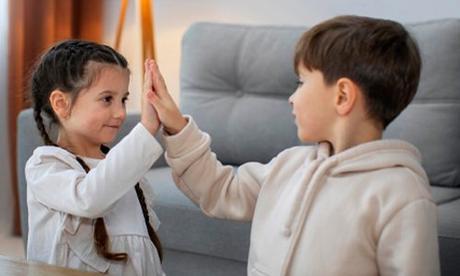
Is Empathy Really That Important?
It's not just a nice thing to have, empathy is crucial for developing social and emotional skills. When kids learn empathy early, they're better at making friends, resolving conflicts, and interacting well with others.
Builds Strong Relationships
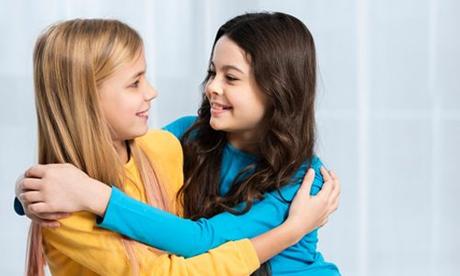
Empathy is the foundation for forming meaningful connections. It helps children understand and respond to the feelings of friends and family, allowing them to build and maintain close, supportive relationships.
Encourages Kindness and Sharing
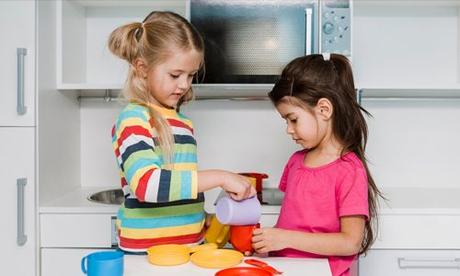
Empathy drives children to engage in pro-social behaviors like sharing toys, helping others, and being kind. Practicing these actions frequently strengthens their ability to cooperate and connect with others.
Supports Emotional Intelligence
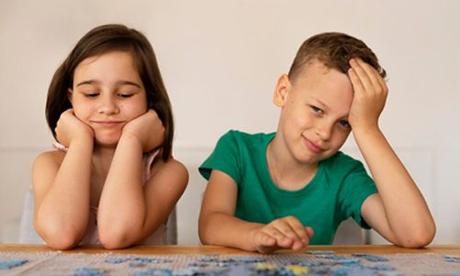
Kids who develop empathy early tend to be better at understanding and managing their own emotions. This helps them navigate challenges, regulate their feelings, and react thoughtfully in various situations.
Reduces Aggressive Behavior
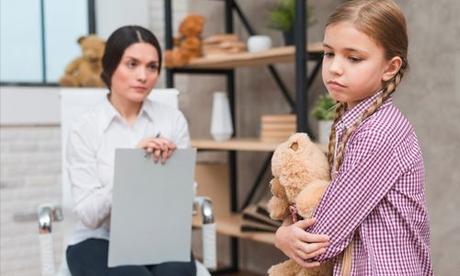
When children recognize how their actions affect others, they are less likely to engage in aggressive or bullying behaviors. Empathy encourages them to think before they act, promoting peaceful conflict resolution.
Boosts Mental Health
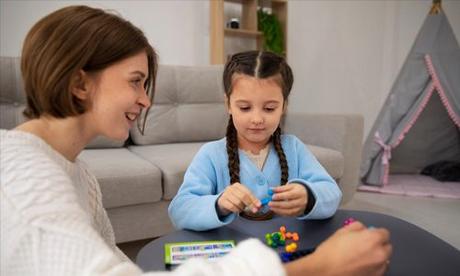
Promotes Long-term Social Success
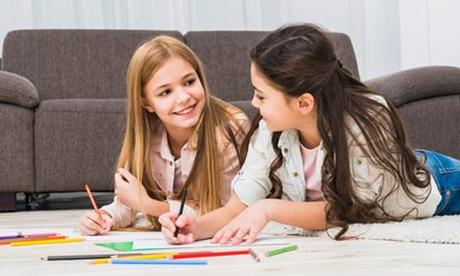
Empathy is a skill that translates into adulthood, helping individuals form strong, cooperative teams, maintain healthy relationships, and contribute positively to their communities.
When Do Babies Develop Empathy?
Now, you might be surprised to learn that the seeds of empathy are planted right from infancy. While fully developed empathy grows over many years, babies show early signs that hint at their empathic potential.
Newborns (0-3 months)
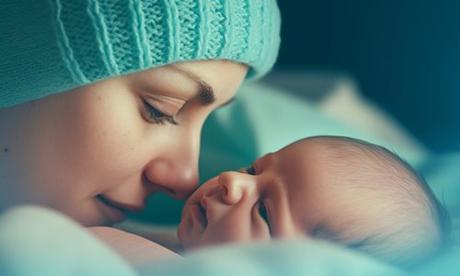
Babies might not be able to truly empathize at this age, but they show something called "emotional contagion." Have you ever seen how one crying baby can make all the other babies start crying too? That's because they react to the emotions of those around them, even if they don't fully understand what's happening. It's like a tiny first step toward learning empathy.
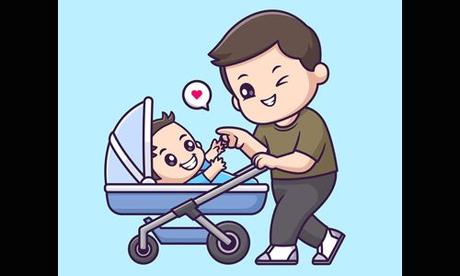
At this age, babies begin to notice feelings around them. If you're upset, your baby might seem worried as well. They are picking up on the emotional atmosphere, even if they don't yet understand why you feel that way.
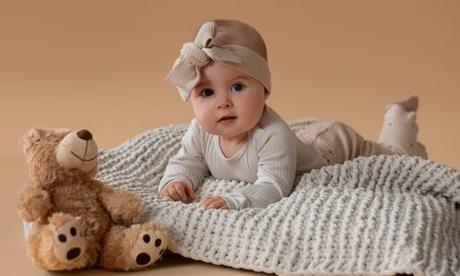
This is when things start to get really interesting. You might see your toddler trying to comfort a crying friend by offering them their favorite toy. At this stage, they're starting to understand that other people have feelings, and they can actually do something to help. It's a big step in their social and emotional growth.
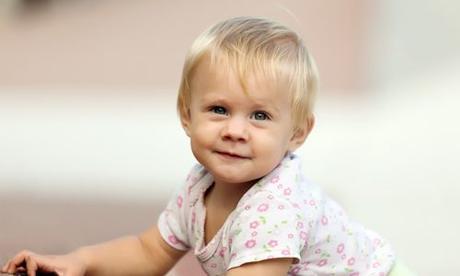
How Can We Encourage and Promote Empathy in Babies and Toddlers?
You might think, "If being nice is natural, do I need to help my child with it?" The answer is yes. Some kids might show empathy early, but it's still a skill that can be enhanced over the years.
Show Empathy Yourself
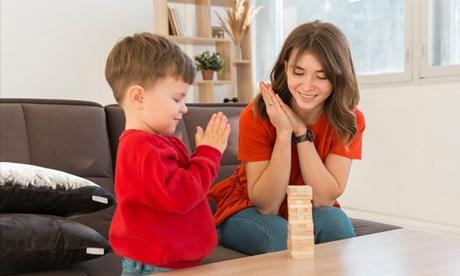
Kids are always watching us, so it's important to model the behavior we want them to learn. When you help a friend or comfort a family member, take a moment to explain it to your child. You might say, "See how I'm helping? I do this because I care about my friend's feelings." This teaches them that being kind and supportive is something to strive for.
Talk About Feelings
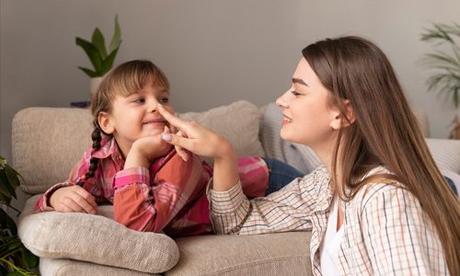
Make it a habit to discuss feelings regularly. When you notice your child is feeling a certain way, label it. You can say, "You look really happy playing with your blocks!" or "I can see you're sad because your toy broke." This helps them start to recognize and understand emotions, both in themselves and in others.
Read Books About Emotions
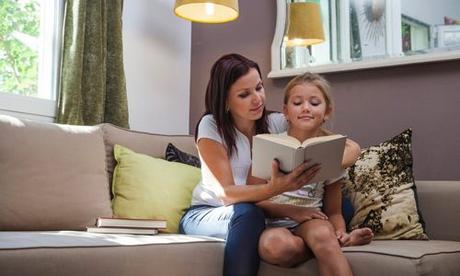
Storytime can be a wonderful opportunity to explore feelings together. Pick books where characters experience a range of emotions. After reading, ask questions like, "Why do you think the character is feeling that way?" or "What do you think we could do to help them feel better?" This encourages your child to think deeply about how others might be feeling.
Play Caring Games
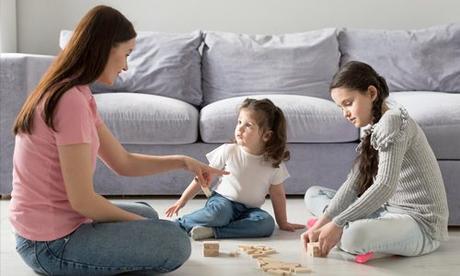
Kids learn a lot through play, so why not use that to teach empathy? Use dolls or stuffed animals and encourage your child to take care of them. They can pretend to feed the doll or comfort it when it's "crying." This kind of imaginative play allows them to practice empathy in a fun and engaging way.
Praise Kindness
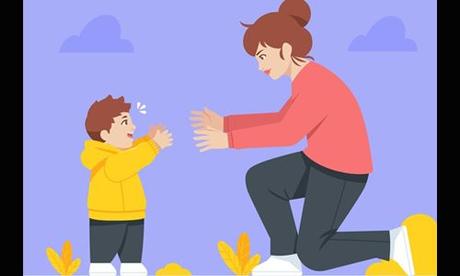
Whenever you see your child being kind, make sure to acknowledge it. A simple, "Wow, that was so nice of you to share your toy" goes a long way. When you recognize their empathetic actions, it reinforces the idea that being kind is valuable and motivates them to keep doing it.
Encourage Social Interactions
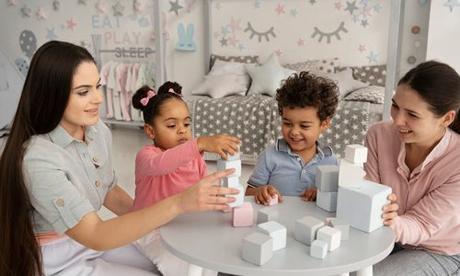
Social situations are perfect for teaching empathy. Arrange playdates, family gatherings, or group activities, where your child can interact with others. During these times, they'll learn to notice and react to how their friends feel, which is really important for building empathy. It also helps them practice being a good friend.
The Fun Zone
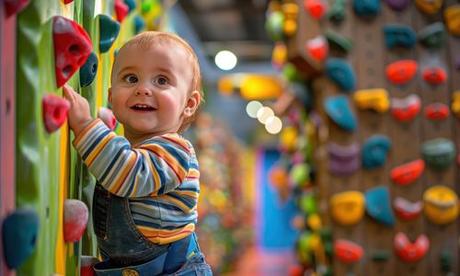
Here's a game given below designed for toddlers (ages 2-4) to help them understand emotions. The game encourages empathy, emotional awareness, and problem-solving, all in a fun and interactive way.
Materials Needed
- Flashcards or pictures showing different emotions (e.g., happy, sad, angry, surprised).
- A magnifying glass (optional but fun for kids to feel like a real detective!).
Set Up the Game
- Lay out the emotion cards or pictures in a circle or spread them on the floor.
- Explain to your child that they are an "Emotion Detective" who needs to find clues to solve the mystery of what each person is feeling.
Describe Each Emotion
- Show one card at a time and ask your child to identify the emotion. Use phrases like, "What do you think this person is feeling?" and "What clues do you see?"
- Encourage them to notice facial expressions, body language, and other visual cues. For instance, a card showing a child with tears might mean they're sad, while a big smile could indicate happiness.
Solve the Mystery Together
- Once your child identifies the emotion, discuss what might have happened to make the person feel that way. For example, "Maybe they lost their toy, and that's why they are sad."
- Ask your child how they could help or respond to the emotion. For example, "What can we do to make them feel better?"
Role-Play Solutions
- If they suggest giving a hug or offering a toy, role-play these actions with a doll or each other. This helps them practice responding empathetically.
- This game helps children recognize and label emotions, making them more aware of the feelings of others. By discussing and role-playing ways to respond, they practice empathy and learn the importance of caring for others.
- The detective element adds a playful twist, keeping them engaged and excited to solve the next emotional "mystery."

I'm Vannessa, a certified masters in curating unique diet plans specializing in nutrition, weight management, stress management etc. I was formerly a member of Healthline's dedicated research team and was recognized as one of their top writers for a decade.I am also actively participating in several health forums, including MomMD and MedHelp.I'm passionate about helping people achieve optimal health through strength training, mindfulness techniques. My articles and guides offer a blend of research and practical strategies to support your specific needs. Let's work together to unlock your full potential for a healthier life.I postgraduated my degree in Advanced Food Safety from Queen's University Belfast. (https://www.qub.ac.uk/)

